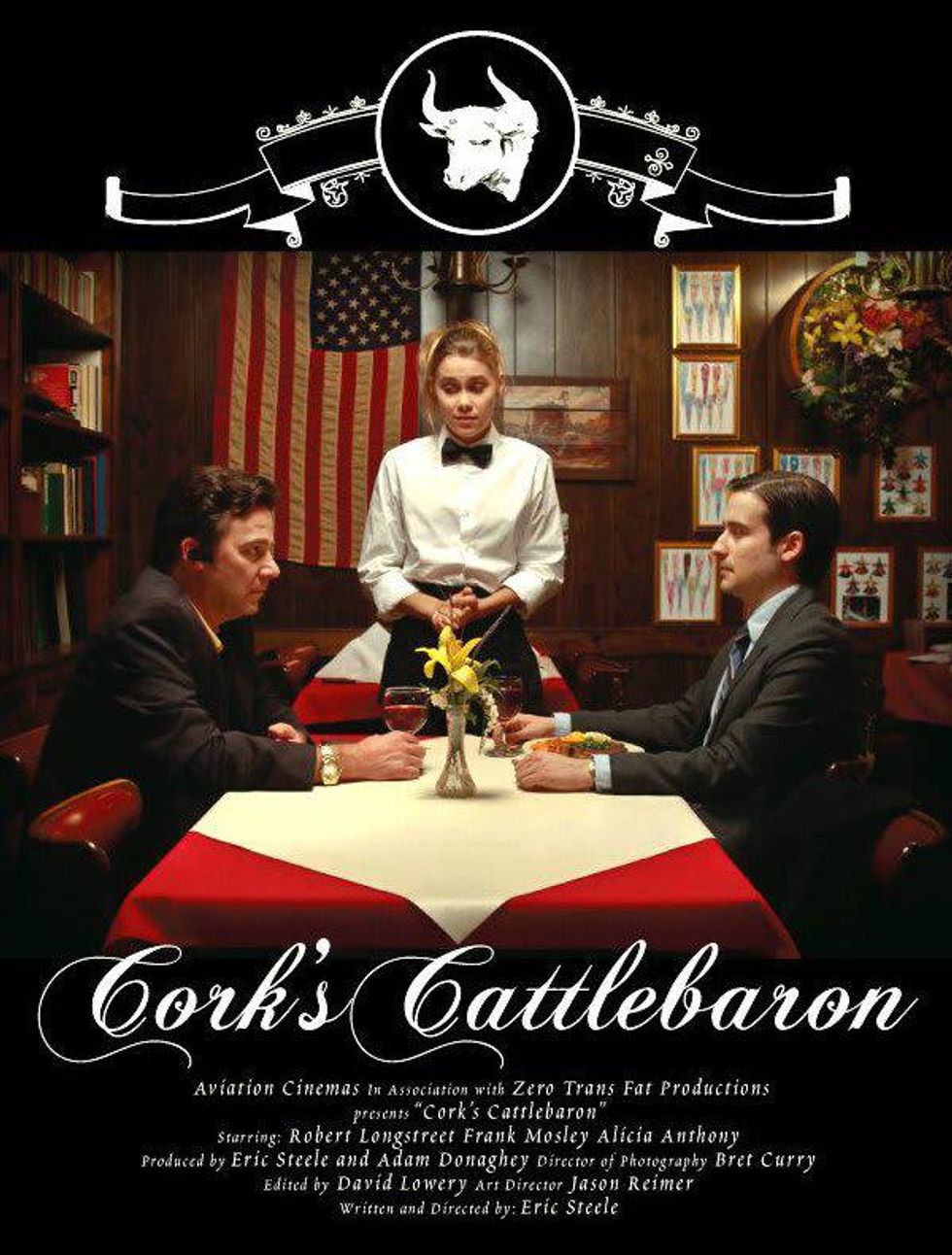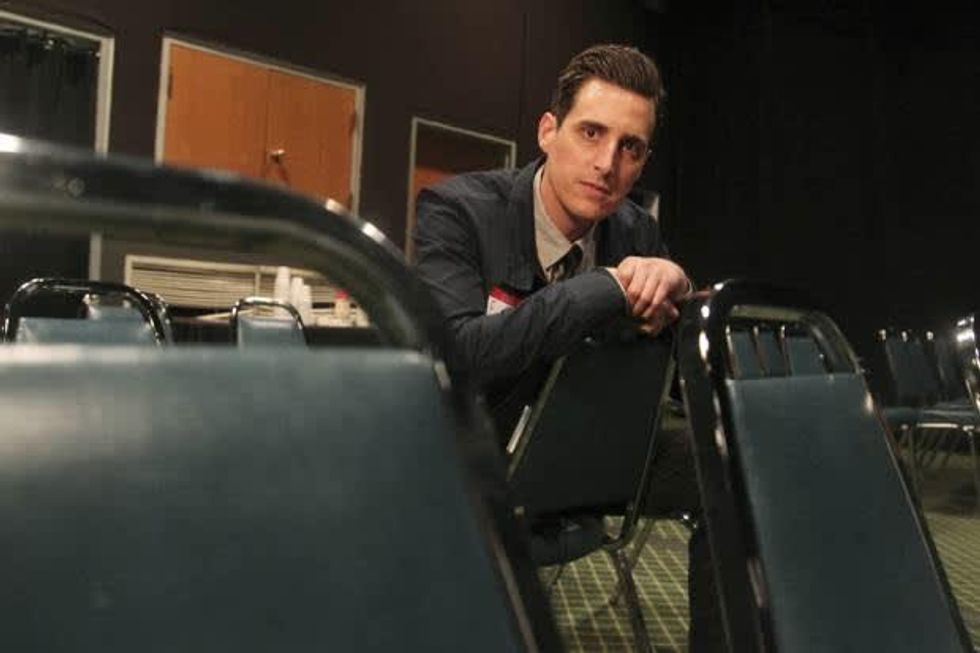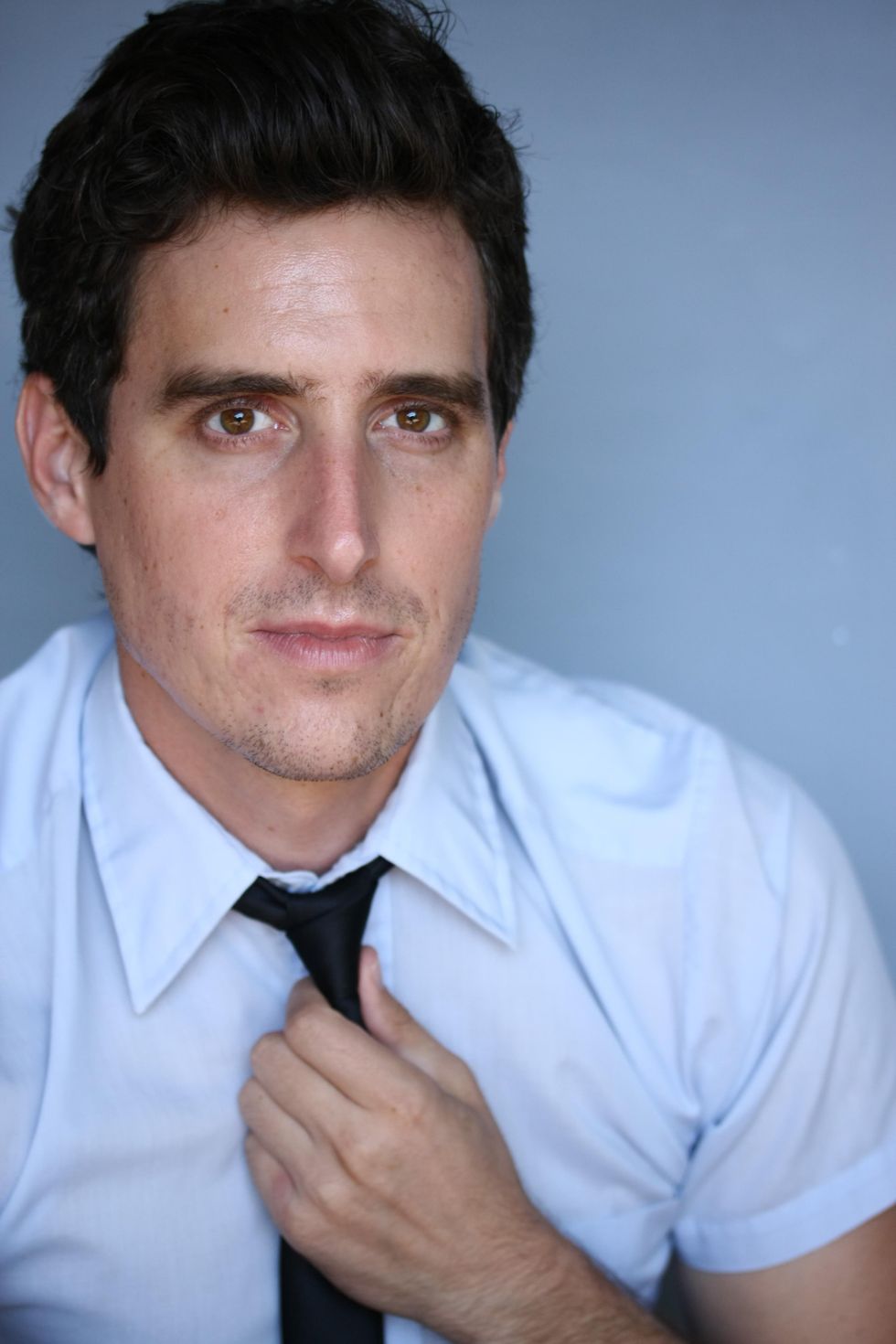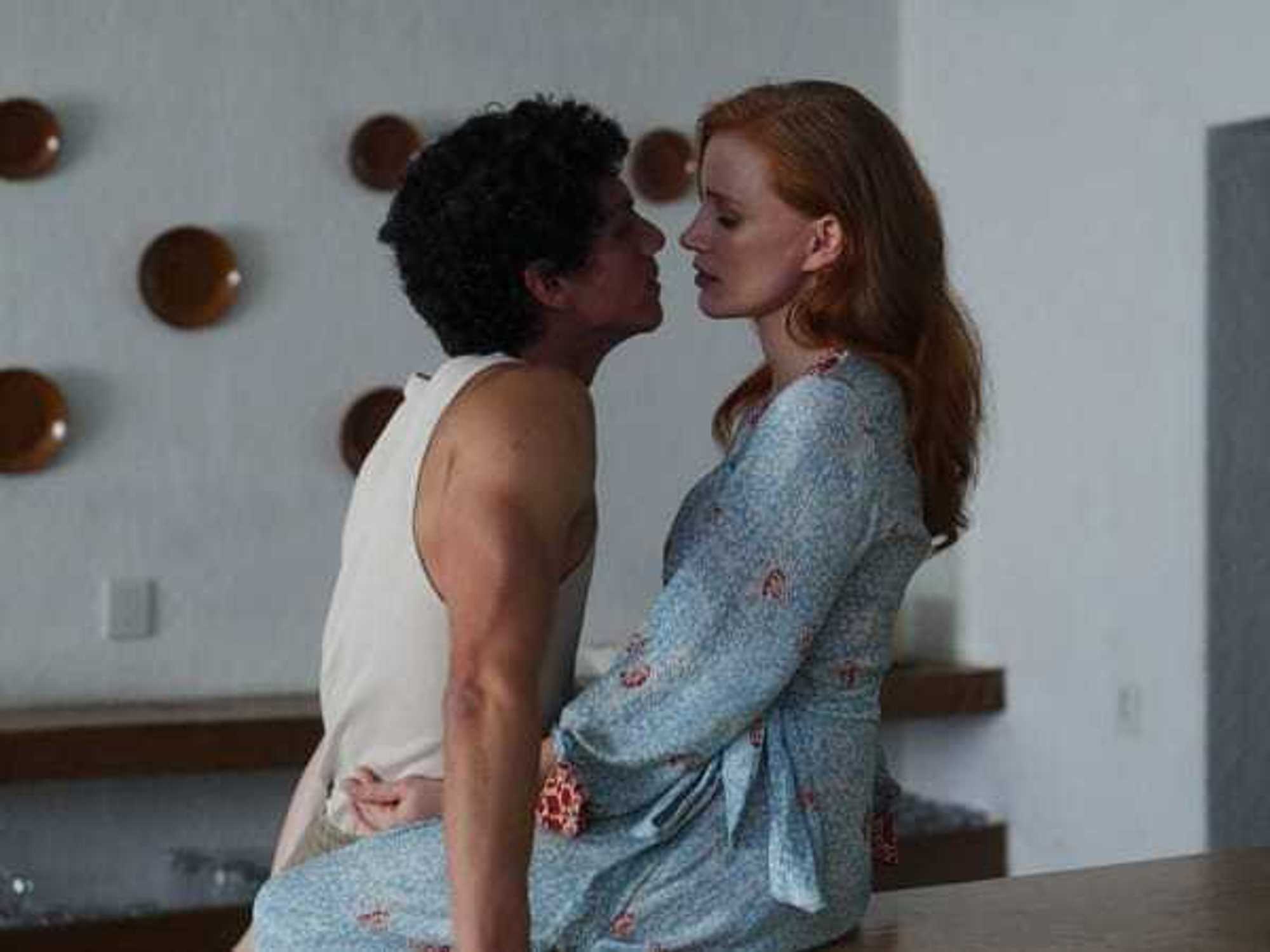Filmmaker Spotlight
Eric Steele, superman of the Dallas film scene, is about to take off
“Ernest Hemingway used to say that the most honest conversation that two people can have is a boxing match,” says Dallas filmmaker Eric Steele, who might as well add boxing to his list of talents.
Aside from writing, directing and producing the feature Bob Birdnow’s Remarkable Tale of Human Survival and the Transcendence of Self, Steele has an acting role in David Lowery’s Ain’t Them Bodies Saints and serves as a producer for Yen Tan’s Pit Stop, both of which are screening at Sundance this month. He is also a partner of Aviation Cinemas Inc., the holding company for the Texas Theatre in Oak Cliff, and the umbrella company Aviation Cinemas Prods.
Oh, and on top of all this, he maintains a full-time corporate job.
Steele says he wrote Bob Birdnow as a way to “explore what, if anything is transcendent and beautiful about corporate America.”
But his journey started simply enough. After studying journalism, film and theater at the University of Oklahoma, Steele experimented with different storytelling mediums. During that time, he wrote the genesis of his short film Topeka, about a young New York businessman traveling through the Midwest.
“Topeka was just something I wrote and didn’t know what to do with,” he says. “I don’t approach things like this is going to fit into this or that [medium].”
Even though it was just a musing, Steele knew he wanted to take his filmmaking to the next level. “I literally just started asking around, getting on Craig’s List,” Steele says. “I didn’t know where to start.”
Texas-based filmmaker Clay Liford responded to Steele’s ad for a director of photography. With his application and a recommendation from a mutual friend, Steele decided to hire Liford, and they set to work on Topeka.
The pair has continued to work together ever since that first short, and Liford is responsible for introducing Steele to many of the filmmakers and business partners he surrounds himself with today. Even though he didn’t know it at the time, Topeka laid the path for Steele to become a leader in the Dallas independent film world.
After Topeka, Steele started traveling more frequently for work, landing him in more of the Midwestern cities that first inspired him. “I began having different thoughts about conflict and isolation in these different cities,” he says. “And I started thinking about corporate America as this primal thing, as if it were here for our survival.”
That idea was the starting point for the short Cork’s Cattlebaron, and Steele says he wrote Bob Birdnow as a way to “explore what, if anything is transcendent and beautiful about corporate America and all this stuff we do every day.”
Ultimately Steele and his partners want to be in the movie production business, funding local films and filmmakers.
Originally written as a play that combined the two short films — creating The Midwest Trilogy — Steele didn’t see Bob Birdnow as a movie at first. It was only after the advice and encouragement from fellow local filmmakers that Steele began thinking about the adaptation.
“My friend David Lowery, who is just an incredible filmmaker, saw the play, and I guess it made an impact on him,” Steele says. “He [and producers James Johnston and Toby Halbrook] pushed me to explore it because it was something that hadn’t been done in a really long time, if ever. That was exciting.”
Steele went back to the drawing board, adding in a character for actor Robert Longstreet. With that addition, the larger conflict of the story began to emerge.
“I thought of no one else but Robert Longstreet to play Jerry, who’s also in Cork’s Cattlebaron, and delivers the performance of the year,” Steele says. “In Bob Birdnow he’s Bob’s anchor; then, of course, Barry Nash [as Bob Birdnow] is just lights out.
“We won’t ever be able to work with Barry again after this. He’ll be in LA getting offered to star in things like Scorsese’s next film.”
Steele admits that he and his Aviation Cinema partners — filmmakers Barak Epstein, Jason Reimer and Adam Donaghey — have bigger dreams. Ultimately they want to be in the movie production business, funding local films and filmmakers.
“You look at people like Spike Lee or Wes Anderson, or even Scorsese,” Steele says. “There have been people, largely single producers, who saw the talent, invested in it early on, and cultivated it because they were interested in seeing where it could go.
“That doesn’t happen anymore, and our hope is that we can have a hand in bringing some of that back.”
Last year the group founded the inaugural Oak Cliff Film Festival, highlighting local, national and international independent filmmakers. They currently are preparing for round two, which kicks off June 6.
Just last week, the group finalized an agreement with Caliber Media Co. to option the feature film rights to Dominic Orlando’s stage play, Danny Casolaro Died For You, which investigates the death of the titular journalist. Steele and team hope to have the adapted screenplay completed and sent out to potential cast sometime in 2013.
The newest project begins a promising partnership between Caliber Media Co. and Aviation Cinemas. The relationship, in a way, dates back to Steele’s childhood, when he was pals Caliber Media’s Dallas Sonnier. The two had stayed in touch from afar, and Sonnier reached out to Steele after seeing mentions of Texas Theatre and Aviation Cinemas in articles related to the Dallas film scene.
“The partnership has been great,” Steele says. “I credit Dallas with pulling all of this together. He is a real pro.”
There is no slowing down for Steele, who will direct the film. “It’s a tough thing,” he says. “These hobbies, this attempted passion, this attempted career, it’s time consuming.
“I’ve never sought out to do something that I think is going to be marketable from the beginning. I approach it as, what am I passionate about, what do I believe in, what do I think is good and interesting, which filmmakers do I want to support? I know that when we do that, we’ll make something good.”



